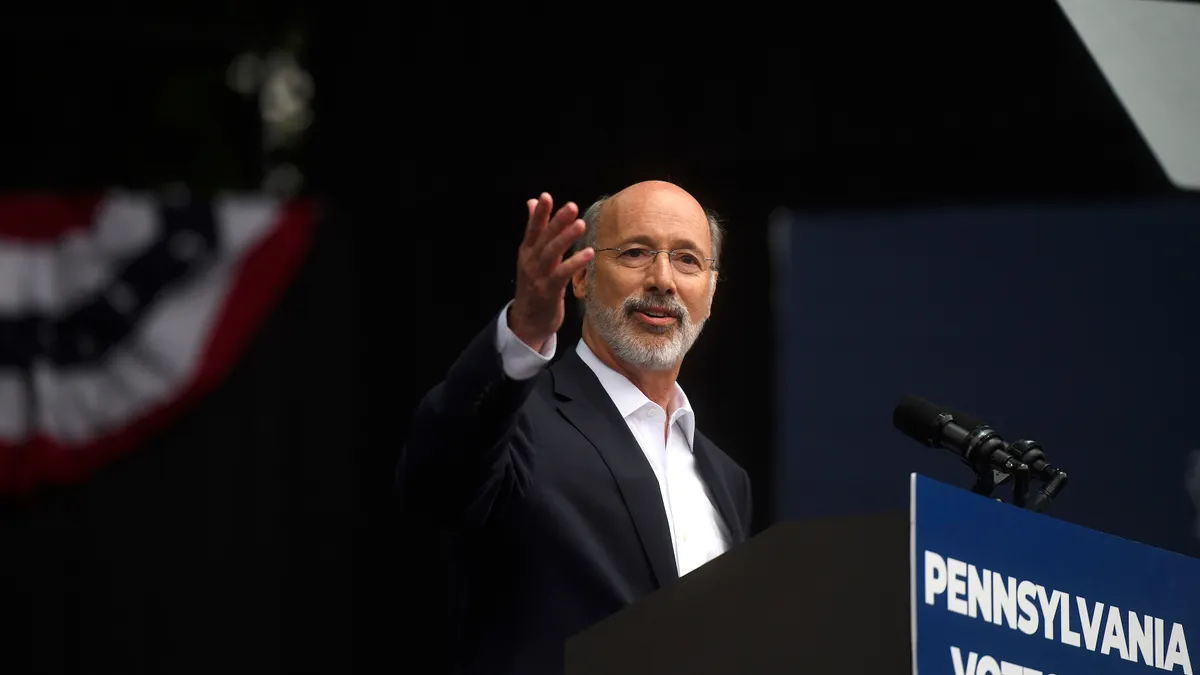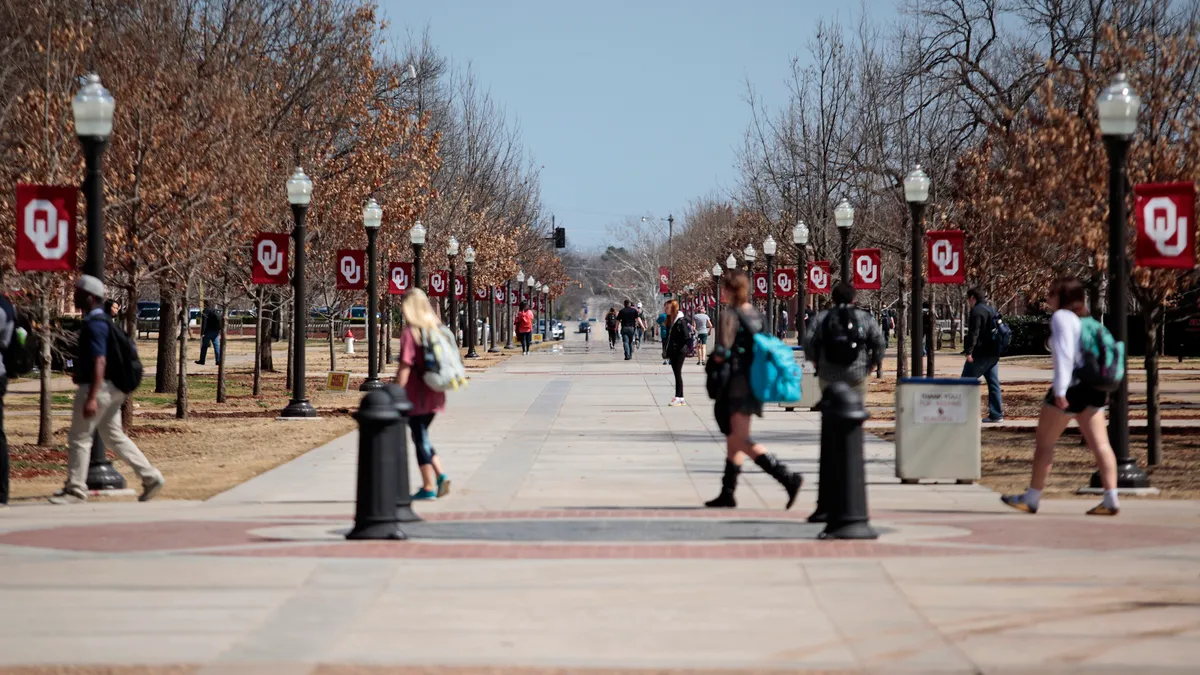Dive Brief:
- Pennsylvania Gov. Tom Wolf unveiled a budget plan Tuesday that would provide the financially anemic Pennsylvania State System of Higher Education $75 million more in general funding for the 2022-23 fiscal year.
- The proposed cash infusion, a 15.7% bump from the previous year's budget, was celebrated by the system, as it exceeded the amount its leaders requested. It follows a major restructuring of the system, which has started merging six of its institutions into two.
- Wolf, a Democrat, also wants to route $200 million to a proposed Nellie Bly Scholarship program, which would help low- and mid-income students in high-demand fields attend a PASSHE university or community college. The money would come from federal funds and a pool of financial assistance for the state's horse racing industry.
Dive Insight:
State budget cuts, largely enacted by former Gov. Tom Corbett, a Republican, shook the system's finances over the last decade. Pennsylvania has one of the lowest levels of state higher education appropriations per full-time equivalent student in the U.S., according to the State Higher Education Executive Officers Association, or SHEEO.
The 14-campus system raised tuition in response to the funding downslide. But officials have said because the system was designed to cater to low-income students, some of them could no longer afford a PASSHE education. Enrollment plummeted more than 20% in 10 years.
PASSHE, which enrolls nearly 89,000 students, also endured pandemic-induced financial stresses and a drop in recent high school graduates, which comprise the vast majority of its students. It competes in a highly saturated postsecondary education market with big-name public and private institutions, including Pennsylvania State University.
The system chancellor, Dan Greenstein, wanted to take PASSHE in a different direction. His signature proposal, which the system's trustee board approved in July amid torrential criticism, will merge six colleges into two new entities. One new university will concentrate on online education, and the other will focus on alternative credentials.
Greenstein had cast the consolidation as a way to show lawmakers that PASSHE is serious about reinventing itself, which will make it worthy of more state investment.
PASSHE trustees in October requested $550 million in general funding for the 2022-23 year, up from $477 million.
Wolf has proposed $552 million for the system.
His plan recognizes PASSHE is "a portal of educational opportunity," said Tom Harnisch, SHEEO's vice president for government relations.
Federal coronavirus aid broadly helped pad state budgets, enabling policymakers to earmark more money for higher ed. But Harnisch said he hasn't seen such a dramatic increase in state funding like the one Wolf is proposing.
During Wolf's budget address Tuesday, he said the commonwealth is enjoying a $2 billion to $3 billion budget surplus.
He also wants to devote $150 million in federal pandemic aid to PASSHE. Its faculty union, the Association of Pennsylvania State College & University Faculties, said this money will be applied to marketing, student and faculty support, and diversity and equity initiatives.
The proposed appropriations "move the State System back toward its original mission of providing a high-quality education at the lowest possible cost to the students," union President Jamie Martin said in a statement. "Public higher education is supposed to be affordable. Not fulfilling this promise has devastating effects on our Commonwealth."
State leaders have also already committed $200 million to PASSHE over several years.
PASSHE spokesperson Cody Jones said in an email the system is grateful to the governor for his proposal.
"The investment will drive continuing transformational change that is underway — change that will ensure all Pennsylvanians have affordable pathways to postsecondary credentials," Jones said.










